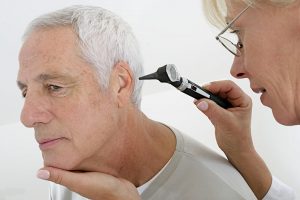
 Hearing is one of the precious of all the five senses, because, we lose contact with the world around us if we lose the ability to hear. Hearing empowers and helps us to lead our lives without limitations. Hearing sounds and noises around us enables us to communicate well, socialize and do our work correctly. Our brain warns us for potential dangers around us with hearing ability. Able to hear a restless baby, a smoke alarm, a telephone ringing and some other important signals indicate that our hearing is proper. According to audiology.com, as we age, our ability to hear gradually decreases, and this is seen in one in every three people of 65 to 75 years old. Even though the age-related hearing loss is not a dangerous condition for life, there is no cure for it.
Hearing is one of the precious of all the five senses, because, we lose contact with the world around us if we lose the ability to hear. Hearing empowers and helps us to lead our lives without limitations. Hearing sounds and noises around us enables us to communicate well, socialize and do our work correctly. Our brain warns us for potential dangers around us with hearing ability. Able to hear a restless baby, a smoke alarm, a telephone ringing and some other important signals indicate that our hearing is proper. According to audiology.com, as we age, our ability to hear gradually decreases, and this is seen in one in every three people of 65 to 75 years old. Even though the age-related hearing loss is not a dangerous condition for life, there is no cure for it.
How to Treat Age-Related Hearing Loss
Losing ability to hear as we age is a common condition in 65 to 75 years old. The condition is not a sudden onset, it affects the quality of life of elders. Losing the ability to hear high-pitched noises and softer sounds is one of the main signs of age-related hearing loss. It is difficult to realize this condition in a person, as both ears are affected same time. It is fine to live without hearing footsteps, or bird’s singing, but it is dangerous, not able to hear warning signs at home or outside world. The age-related hearing loss will creep up slowly but affects your ability to live a richer life. In early stages, an elderly person with hearing loss has difficulty in understanding words. They will be able to hear sounds and noises but are unable to make out the words, particularly, when they are at places where the background noises are high. They start speaking loud than their usual tone. Unfortunately, they will not be aware of it unless a hearing test is made part of a regular medical examination. One of the common symptoms of age-related hearing loss is ringing sensation in the ear
 Once you are diagnosed with hearing loss, related to age, then your doctor will assist you to improve your hearing by recommending hearing aids, assistive devices such as telephone amplifiers, cochlear implant, a small electronic device implanted in the ear with a simple surgical procedure, and in case of severe loss of hearing, they teach their patients lip reading and sign language. All devices enable you to listen to sounds a bit louder but do not restore your normal hearing, because there is no permanent cure once the condition begins.
Once you are diagnosed with hearing loss, related to age, then your doctor will assist you to improve your hearing by recommending hearing aids, assistive devices such as telephone amplifiers, cochlear implant, a small electronic device implanted in the ear with a simple surgical procedure, and in case of severe loss of hearing, they teach their patients lip reading and sign language. All devices enable you to listen to sounds a bit louder but do not restore your normal hearing, because there is no permanent cure once the condition begins.
Protect Your Ears From Loud Noises
Our body undergoes many changes as we got older, and age-related hearing loss is one of them. So, there are no known preventive measures for this condition. However, remember the proverb ‘prevention is better than cure’. Taking some good care may slow down the process. Protect your ears from too noisy or loud noises that last for too long. Exposure to loud noises will lead to a noise-induced hearing loss. Educate yourself about potential sources of damaging noises such as loud sounds or music, snowmobiles, leaf lowers, firearms, or lawn mowers. Try to reduce the time you expose to loud noises, use ear plugs or ear muffs to limit the levels noises to hear, will protect your hearing.
